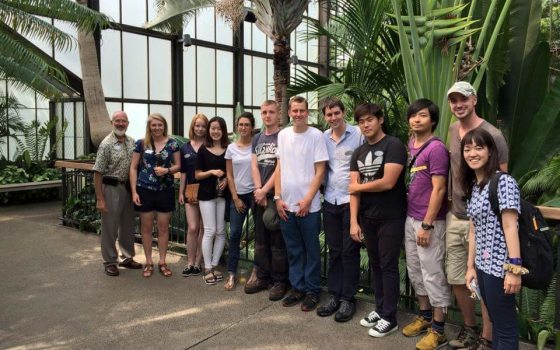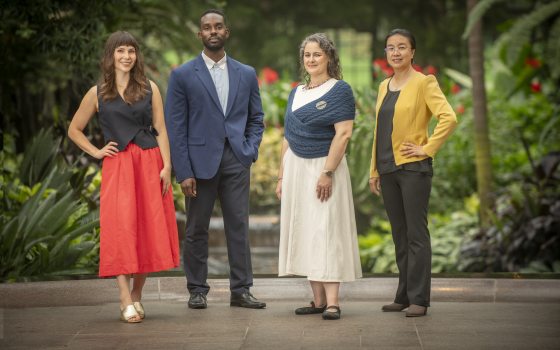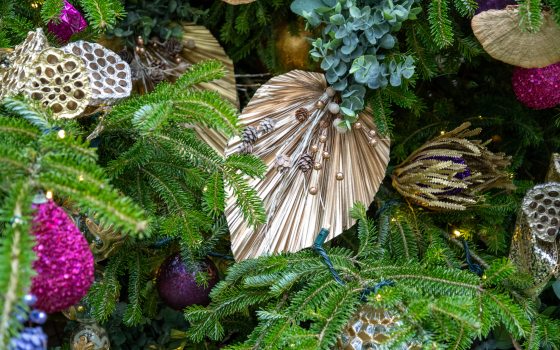Longwood Gardens is known not only for its leadership in horticulture, but also for its excellence in education—both at home and abroad. Among its many outstanding programs is Longwood’s International Training Program, which was founded in 1956 with Aage Anderson of Denmark as its first participant. This year there are international trainees and interns from Poland, Spain, South Korea, and the UK. The program allows each individual to focus on key areas of interest and to broaden their learning experience by rotating through different areas of the Gardens, including outdoor display, indoor display, natural lands, production, education, marketing, plant records, and research.
Participants live with American interns, Professional Gardener (PG) students, and Great Gardens of the World TRIAD fellows on Red Lion Row, which is just a short walk from the Gardens. “The Row” was originally built by Longwood’s founder, Pierre S. du Pont, to house employees and their families. Nowadays 20 to 40 students live on “The Row” at one time, which leads to a unique and highly sociable international community, sometimes known as plant camp!
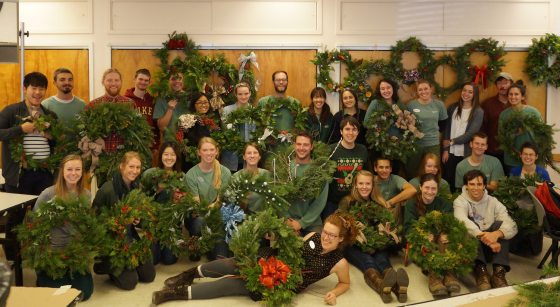
International trainees, Interns, PG students & TRIADs take part in a wreath making workshop Christmas 2015. Photo by Bryan Kottke.
This diverse mix of cultures allows Longwood Gardens and its students to network and build connections around the world. The large number of highly skilled staff at Longwood adds to the learning experience, as there are specialists working in every field of horticulture with a high level of expertise.
Personally, I came from Scotland to join the International Training program. I have always been fascinated by the beauty of plants and how to nurture them. I was hooked on horticulture from the age of fourteen, when I begged my Dad for a vegetable patch and elbowed my Mother out of her newly built greenhouse. Growing up I was always playing outside, observing nature and getting my hands dirty. I went on to train at the Royal Botanic Garden Edinburgh, where I gained a First Class BSc. Honours degree in Horticulture with Plantmanship. I have worked at Prince Charles’s Highgrove Gardens, for private clients including design work, and in garden retail.
At Longwood, I have observed and assisted with the Chrysanthemum Festival, A Longwood Christmas, Spring Blooms and Orchid Extravaganza, which are all huge events in the Gardens' calendar. Each Thursday afternoon as part of our training, all of the students participate in educational field trips that range from visits to local gardens, botanic gardens, and flower festivals to hands-on workshops. The program has allowed me to broaden my knowledge of horticulture and to gain valuable skills in the operation of a large public garden. I have also been able to absorb American culture and cope with the subtle differences in language between the USA and the UK. Some examples that challenged me include: faucet = tap; flashlight = torch; eggplant = aubergine; zucchini = courgette; trash = rubbish; pants = trousers.
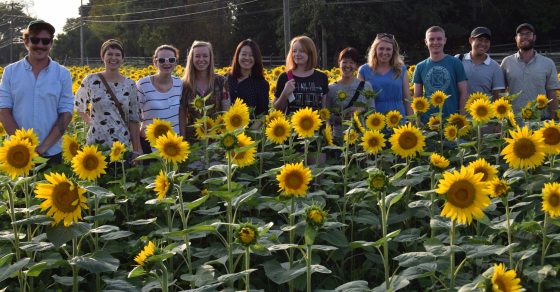
A group of International trainees, interns, PG students & TRIAD fellows visit a local sunflower field, September 2015. Photo by Kirsty Wilson.
Whatever the language, the experience at Longwood Gardens has motivated me to inspire all horticulturists to even greater levels. Sadly, today, both in the USA and the United Kingdom, people frequently don’t consider horticulture as an important career path. However, efforts to change this are under way. Longwood is supporting Seed Your Future, which is a campaign to get young people into horticulture. This is similar to the YoungHort and the RHS Horticulture Matters activities being carried out across the pond. When I return to the UK in May and revert to speaking UK English, I aim to work in a public or botanic garden where I will continue to champion horticulture as a valuable and interesting career. In any language, plants are critical to the environment and need to be cared for and managed by well-trained and well-travelled horticulturists.
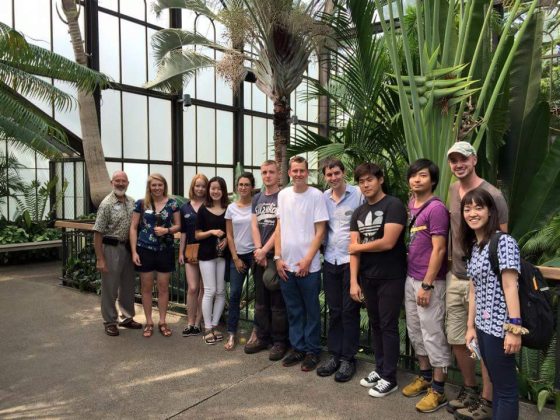
Internationals on a Garden Tour with Doug Needham, Director of Education. Left to right: Doug Needham, Director of Education; Kirsty Wilson, International Trainee (Scotland); Alicja Chmielewska, International Intern (Poland); Hareun Kim, International Intern (South Korea); Ariane Arrausi, International Trainee (Spain); Simon Grimwood, Staff Exchange (England); Lawrence Kelly, International Intern (England); Benjamin Williamson, International Intern (England); Hyeoncheol Cho, International Intern (South Korea); Takeshi Nakatsuka, TRIAD (Japan); Ian Dent, Staff Exchange (England); Chikako Okubo, TRIAD (Japan). Photo courtesy of Kirsty Wilson.
